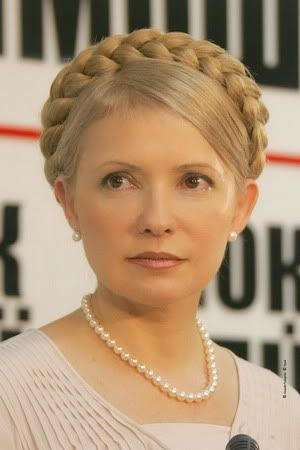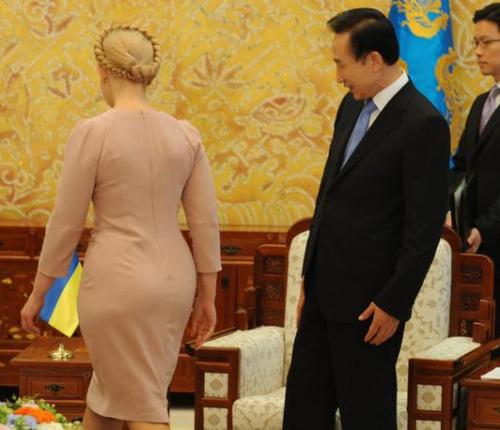Ukraine unrest: Nato condemns crackdown on protesters
The BBC's Daniel Sandford: "The debate inside parliament was fierce and noisy too"
Continue reading the main story
Ukraine's protests
Nato foreign ministers have condemned the use of "excessive force" against pro-European protesters in Ukraine after a meeting in Brussels.
US Secretary of State John Kerry urged Ukraine to "listen to the voices of its people".
Earlier, Prime Minister Mykola Azarov apologised in parliament for the use of police force against protesters.
Mass protests were sparked by the government's decision not to sign an association deal with the EU last week.
Thousands demonstrated outside the parliament building in Kiev on Tuesday, with protests in the city once again continuing into the evening.
"We urge all sides to conduct themselves peacefully. Violence has no place in a modern European state," Mr Kerry told reporters.
The ministers said
in a statement that they urged "Ukraine... to fully abide by its international commitments and to uphold the freedom of expression and assembly".
"We urge the government and the opposition to engage in dialogue and launch a reform process," they added.
'Coup' scenario
Earlier on Tuesday, the Ukrainian parliament rejected an attempt to force the resignation of the government.
The opposition tabled the motion of no-confidence, which was defeated.
Before parliament voted on the motion, Mr Azarov addressed an emergency session:
"On behalf of our government, I would like to apologise for the actions of our law enforcement authorities on Maidan [Independence Square]," he said, referring to violence at the weekend. "The president and the government deeply regret that this happened."
Protesters were still out in force in Kiev on Tuesday evening
Speaking above boos by opposition deputies in parliament, the prime minister called for protests outside the government buildings in Kiev to end, and appealed for Ukrainians not to return to the unrest of the Orange Revolution of 2004.
"We reach out our hand to you. Push away the plotters, the plotters seeking power and who are trying to repeat the scenario of 2004," he said.
Later he said the government was ready for dialogue with protesters but that they must "stop occupying government buildings and interfering with the work of the government administration".
On Monday, Mr Azarov had said he saw "all the signs of a coup" as protests intensified.
He said the government was aware of plans to seize the parliament building.
Demonstrators are demanding the resignation of Mr Azarov and President Viktor Yanukovych, and have called for a general strike.
'Provocateur' claims
Mr Yanukovych - who has gone ahead with a planned visit to China - has warned that the rallies should only be peaceful after violence at the weekend.
The main opposition leaders have condemned the violence, saying it was the work of "provocateurs".
The newspaper Ukrainska Pravda
published a series of videos and photographs which it says backs up the claims.
The images appear to show a group of young men wearing masks and helmets pushing against police lines in front of the presidential building. Soon afterwards several are seen beckoning to others in the crowd and then passing through the blockade, without resistance from officers.
At least one of the men is also pictured standing uninterrupted behind the riot police.
A series of pictures showed a man in a purple jacket both pushing against officers and standing behind police lines
In another development, on Monday Mr Yanukovych asked the European Commission to allow him to send a delegation for talks on "some aspects" of the EU association agreement that Ukraine had been expected to sign, officials in Brussels said.
Continue reading the main story
Viktor Yanukovych
- Born into family of a metalworker and a nurse in July 1950
- Began career as transport executive in coal-mining industry in Soviet era.
- Later served as governor of Donetsk region - country's economic powerhouse and home to more than three million people
- Appointed prime minister in November 2002
- Ousted from power by the 2004 Orange Revolution, but returned as PM in 2006-07 and won presidential election in 2010
Commission President Jose Manuel Barroso agreed to the request, but stressed the Commission was ready to discuss implementation of accords already initialled, "but not to reopen any kind of negotiations".
The protests began just over a week ago after a halt was ordered to preparations to sign a deal on closer integration with the EU.
Hundreds of people put up tents on Independence Square on Sunday night, after a mass rally that drew hundreds of thousands, amid calls for a general strike.
The headquarters of the cabinet has been blockaded, with government employees unable to reach work.
Police reinforcements are being sent to Kiev, Ukrainska Pravda reported.
For his part, President Yanukovych urged police and demonstrators to observe the law.
"Any bad peace is better than a good war," Mr Yanukovych said in a TV interview reported by his own website - his first comments on Sunday's violence.
President Vladimir Putin of neighbouring Russia blamed "outside actors" for events in Ukraine, saying they seemed "more like a rampage than a revolution."
http://www.bbc.co.uk/news/world-europe-25206058

















